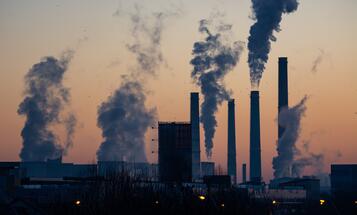
Stripe will pay $1 million a year to take carbon out of the air — but will it work?
“It doesn’t address a lot of the co-pollutants that are also produced in fossil fuel combustion that have public health impacts.”
Even though there is a scientific consensus on the need to draw down carbon from the air, there are concerns that heavily relying on carbon capture and negative emissions technologies could take away from efforts to cut down on fossil fuel use in the first place. “It kind of compartmentalizes the carbon emissions piece without actually holding fossil fuel companies accountable for the entire pipeline,” explains Adrien Salazar, campaign strategist at the think tank Demos, which has been instrumental in crafting potential climate policy like a federal Green New Deal. “It doesn’t address a lot of the co-pollutants that are also produced in fossil fuel combustion that have public health impacts.”
Salazar is skeptical that the new technologies will be a silver bullet for big, bad climate change. “The technology is unreliable, it hasn’t proven cost effective up to now, and the risk of allowing continued pollution are too great to be investing billions of dollars in a technology that is really meant to keep the fossil fuel industry on life support,” Salazar says.



